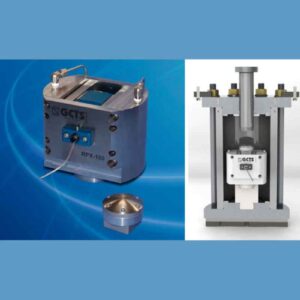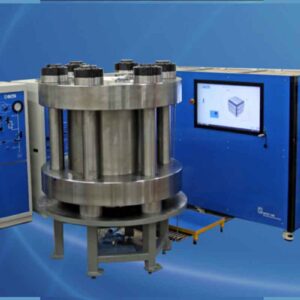Description
The GCTS RPS-100 Rock Polyaxial System can be used to study the effect of intermediate principal stress on rock behavior and adequately describe the strength of rocks under a general system of polyaxial compressive stresses. Syringe pressure intensifiers are used to apply the σ1, σ2 and σ3 stresses independently through computer control of the stress or strain on each plane.
Therefore, any stress state can be tested using this device. GCTS offers many upgrades for this system, making it possible to perform a wide variety of tests. A temperature control unit can provide complete computer control of the temperature of the system, enabling tests to be performed at up to 150OC. Hydraulic fracturing fixtures and semicircular loading platens are available to approximate the effects of anisotropic stress states on borehole stability.
Ultrasonic sensors can also be provided to study the effects of anisotropic stress conditions on compression and shear wave velocities. Velocities for all three axes can easily be measured during polyaxial tests with this option.






Reviews
There are no reviews yet.